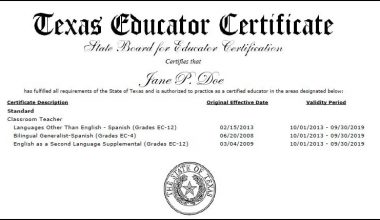Education is one of the most powerful ways to change your life, especially for Nigerian students. But paying for school can be tough. Luckily, there are student loans in Nigeria provides by the Nigerian Government to help ease this financial burden.
You love learning, want to gain new skills, and are excited to help Nigeria grow. But the costs of tuition, books, and other expenses seem to weigh you down. This is a common struggle for many Nigerian students, but it doesn’t have to be yours.
This guide will show you the various types of student loans available in Nigeria, help you figure out if you qualify, and guide you through the application process step by step. By the end, you’ll know exactly how to get the financial support you need for your education and vocational training, making your dreams more achievable. Read on to find out how you can take the next step towards your future.
Table of contents
- What are Student Loans?
- Why Student Loans in Nigeria?
- Who Can Apply for Student Loans in Nigeria? | Eligibility Criteria
- How Can I Apply for Student Loans in Nigeria? | Step-by-Step Guide
- Required Documents for Student Loans in Nigeria
- Worth of Student Loan
- How to Apply for First Bank Student Loan in Nigeria
- How Can I Get a Student Loan in Nigeria?
- How Can I Get a Student Loan from the Central Bank of Nigeria (CBN)?
- When Can I Start Repaying?
- FAQs on Student Loans in Nigeria
- Conclusion
- References
- Recommendations
What are Student Loans?
Student loans are financial aid opportunities available to take care of costs associated with students’ higher education. These costs include textbooks, accommodation, tuition, and every other cost you can consider as a student.
To access these loans, you must meet certain requirements and be of a certain eligibility status. Criteria include good academic standing and creditworthiness. In addition to student loans sponsored by the Federal Government of Nigeria, there are student loans proudly sponsored by private and financial institutions.
The major difference between these different loans is that while the government-sponsored student loan comes with a flexible repayment plan, the ones from banks do not come that easy, and their interest rates are outrageously high.
Why Student Loans in Nigeria?
Enrolling in higher education can be a lot, and seeing that most Nigerian students cannot afford their bills is one of the many reasons, student loans are available. Other reasons include the following:
- Access to higher education: By covering the numerous costs associated with higher education, many students will have access to it.
- Encourage academic excellence: No student concentrates entirely while considering how to raise their next bill. But with the availability of student loans to cover those disturbing needs, these students can devote total concentration to their studies, which translates to graduating tops.
- Flexible repayment plan: These students loans have flexible repayment plans that allow the students to land a job after graduation before thinking of how to pay back these loans. So, this is a beautiful reason to go for student loans if you can’t afford your basic needs in school.
- Supports economic growth: True that an educated workforce is necessary for national development. So, the number of knowledgeable workforce, the more Nigeria grows economically.
See: Easy High School To College Transitions: 15 Best On The List
Who Can Apply for Student Loans in Nigeria? | Eligibility Criteria
Although student loans are generally meant for those who are incapable of financing their education, not all Nigerian students are eligible.
Let’s find out in the following section who can apply.
- Applicant who has gained admission into a recognized public Nigerian University, Polytechnic, College of Education
- Applicant whose income or family’s is not more than 500,000 per annum
- Applicant who can provide at least two civil servants of not less than level 12 years in service as guarantors
- Applicant who has a valid means of identification
Despite these, certain factors may disqualify a student from receiving this student loan. Factors like:
- Being found guilty of examination malpractice
- Not being creditworthy of previous loans
- If your parents have defaulted on government loans, you also may not stand a chance
How Can I Apply for Student Loans in Nigeria? | Step-by-Step Guide
If you are by all standards, certified eligible, you can go on to apply for Tinubu student loans in Nigeria. All you need do is:
- Be sure you meet the eligibility criteria. Some listings are above. Carefully go through them.
- Prepare the necessary documents for the application, such as academic transcripts, admission letters, account statements, results, and matriculation numbers.
- Visit the website for the student loan you want to apply for. Make sure you have a reliable internet connection.
- Provide accurate and complete information in the application form. This may include personal details, academic history, and other information they may request of you. Take your time and double-check your responses for accuracy.
- Please review your application for the last time before clicking the submit button. This will ensure you correct all typographical errors that may impede your chances.
- Submit your application through the Student Affairs Office of your institution.
- Wait for approval and follow up on the status of your application.
It is, however, expedient to note that when these loans are disbursed, they go directly to the school. So, you can ensure to keep track of it when it arrives.
Read: Certified Student Loans vs Uncertified Private Student Loan | All You Need to Know
Required Documents for Student Loans in Nigeria
To complete the Tinubu student loan application, you will need the following documents:
- JAMB admission letter
- Student matriculation or registration number
- Bank Verification Number (BVN)
- National Identity Number (NIN)
- Account Statement
- Academic result
Worth of Student Loan
Currently, the maximum amount a Nigerian student is entitled to in the Tinubu student loan is Five Hundred Thousand Naira Only (#500,000).
How to Apply for First Bank Student Loan in Nigeria
If you’re looking to get a student loan from First Bank in Nigeria, here’s a simple guide to help you through the process:
1. Visit a First Bank Branch
Find the closest First Bank branch and go there in person. This way, you can get accurate guidance and ensure you have all the required documents.
2. Ask About Student Loan Options
Talk to a bank representative or the customer service desk about their student loans. They will give you details on the different loan options, interest rates, repayment terms, and eligibility requirements.
3. Understand the Requirements
Ask for a list of documents and requirements needed for the loan application. You’ll typically need:
- A completed loan application form (you can get this from the bank)
- An admission letter from the school you plan to attend
- Valid ID (like a National ID card, international passport, or driver’s license)
- Academic transcripts or results
- Guarantor’s information (including their ID, proof of income, and address)
- Bank statements (usually for the guarantor)
4. Prepare the Necessary Documents
Gather all the required documents. Make sure everything is complete, up-to-date, and meets the bank’s specifications.
5. Fill Out the Application Form
Accurately complete the loan application form. Double-check for any mistakes or missing information before submitting it.
6. Submit Your Application
Take your completed application form and supporting documents to the bank. Submit them to the department or desk that handles student loans.
7. Wait for Loan Assessment
The bank will review your application, documents, and eligibility. They will look at your creditworthiness, academic record, and your guarantor’s credibility. This process can take some time, so be patient.
8. Loan Approval and Disbursement
If your loan is approved, the bank will notify you. They will give you details about the loan amount, interest rate, repayment schedule, and any other terms. Once you accept the offer, the bank will disburse the loan either to your account or directly to your school.
How Can I Get a Student Loan in Nigeria?
Before we go on to guide you on how to go about your student loan, it is important to intimate you with how it works. Ideally, the student loan scheme is open to students in federal universities, polytechnics, colleges of education, and technical colleges.
To make them more affordable, there are no interest rates and the best part of the entire application process is that it is done online. And, when your application for a student loan is approved, the tuition fees are paid directly to the institutions, one academic session at a time.
Simple Steps to Secure your Student Loan on the Student Loan App
To secure your loan on the student loan app, follow these three steps to get started:
- Step 1: Register on the student loan app and click on the “Apply now” button to get started
- Step 2: Click on the “Request for Student Loan” button, follow and complete the steps required og you and submit your application
- Step 3: Your application will be reviewed. While the payment for institutional charge is sent to your school, the upkeep loan will be sent to the account number you provided when filling your application.
Step-by-Step Application Process for the Nigeria Education Loan Fund (NELFUND)
- Check Your Eligibility
- Make sure you’re a student at a federal tertiary institution.
- Verify that your school has uploaded your information on the NELFUND dashboard.
- Prepare Required Documents
- Get your admission letter from JAMB.
- Have your National Identity Number (NIN) ready.
- Make sure you have your Bank Verification Number (BVN).
- Visit the NELFUND Website
- Go to the official website: www.nelf.gov.ng.
- Find the loan application section.
- Complete the Application Form
- Fill out the form with accurate and current information.
- Upload all the required documents.
- Submit Your Application
- Double-check all the information for accuracy
- Submit the application form online.
- Await Confirmation
- Keep an eye on your email and the NELFUND portal for updates on your application.
How Can I Get a Student Loan from the Central Bank of Nigeria (CBN)?
If you’re looking to finance your education through a student loan from the CBN, follow these steps:
- Check Your Eligibility
- Gather Required Documents
- Admission Letter
- National Identity Number (NIN)
- Bank Verification Number (BVN)
- Guarantor’s Information
- Visit the CBN Student Loan Portal
- Complete the Application Form
- Submit Your Application
- Await Confirmation
- Monitor Your Application
- Keep an eye on your email and the CBN portal for updates.
When Can I Start Repaying?
The Nigerian government is kind enough not to invalidate the struggles of a graduate torn between getting a good job and paying the bills at home after the one-year compulsory NYSC.
So, your loan repayment doesn’t start until two years after your NYSC and after you’ve indicated you landed a job or established a business. Once you do, a meagre 10% of your income is automatically deducted through the payroll system.
This process continues till you’re able to pay off the debt.
FAQs on Student Loans in Nigeria
Any public Nigerian higher institution or vocational school student can apply for a student loan.
These student loans allocate a maximum amount of five hundred thousand naira to students to cover for their textbooks, tuition, and other costs they may incur academically.
Currently, there are two major types of student loans available in Nigeria: government-backed loans and private loans.
Conclusion
As a Nigerian student looking to reduce the cost of higher education, the first thing to do is check if you qualify for the various student loans in Nigeria.
Gather your documents and submit your applications with confidence because you’re an inch closer to achieving your academic goals.
Good luck!
References
- Legit.ng – Student Loan: How Can I Apply, What Can I Borrow and When Do I Pay It Back?
- Statehouse.gov.ng – The Student Loan
- Punchng.com – FG opens student loan application portal



